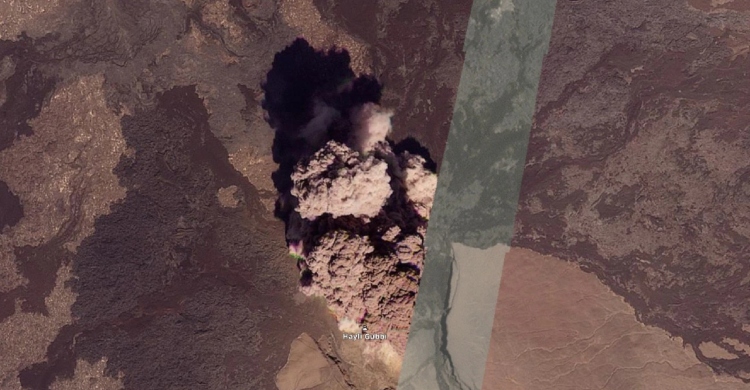Ethiopia’s long-dormant Hayli Gubbi volcano eruption subsides


Volcanic activity at northern Ethiopia’s long-dormant Hayli Gubbi volcano eased Tuesday, days after an eruption that damaged nearby villages and disrupted flights due to ash plumes affecting high-altitude flight paths.
In Afdera district, Afar region, ash blanketed villages, causing residents to cough and covering livestock’s grazing areas and water sources, officials said. Airlines canceled dozens of flights over affected airspace, though meteorologists expected the ash to clear later in the day.
India’s national carrier, Air India, canceled 11 flights — mostly international — to inspect aircraft that may have flown over the ash-affected region, following directives from India’s aviation safety regulator. Akasa Air also canceled flights to Middle Eastern destinations, including Jeddah, Kuwait, and Abu Dhabi. At least seven international flights to and from New Delhi’s Indira Gandhi International Airport were canceled Tuesday, with more than a dozen delayed.
Health officials in Afdera launched mobile medical teams to assist residents in remote neighborhoods such as Fia and Nemma-Gubi. “Two medical teams have been dispatched to provide mobile medical services,” said Abedella Mussa, a local health official. Livestock official Nuur Mussa added that animals struggled to find clean water or grass, which were entirely covered by volcanic ash.
Geologist Atalay Ayele of Addis Ababa University noted that Ethiopia lies along an active rift system prone to earthquakes and volcanism. “This is the first recorded eruption of Hayli Gubbi in 10,000 years,” he said, predicting the eruption would likely be brief before entering a dormant phase.
Strong winds carried the ash across the Red Sea, Yemen, Oman, the Arabian Sea, and into western and northern India, moving toward China. Indian authorities expected the skies to clear by late Tuesday, according to the India Meteorological Department.
